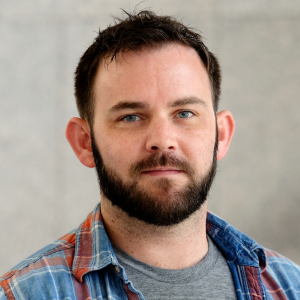Presented By: The Center for the Study of Complex Systems
CSCS Seminar | A Network Science for Complexity & Society
Brennan Klein, Network Science Institute, Northeastern University

Talk will be recorded for later viewing. Snacks and coffee will be available.
Abstract: Complex networks are the syntax of complex systems, and they give us a unique ability to understand a range of phenomena across nature and society. This broad field is reflected across my research program, which spans projects that are highly theoretical in nature to others that are more applied—more focused on topics in public health, public safety, and justice. In the first part of this talk, I will describe a theoretical and computational approach that allows us to ask whether a given network captures the most informative scale for understanding the underlying dynamics of a system. Here, I present a series of papers that ask why we so often see multi-scale, higher order structure emerge in complex systems, based on a concept known as causal emergence. In the second part of the talk, I highlight how these same ideas can be used to ask new questions about structural inequalities in society—ranging from the disparate impacts of the COVID-19 pandemic to racial disparities in the U.S. criminal legal system. I will close with a short discussion about how these two broad areas of research each contribute to my larger goal of creating a more useful network science, one that provides the appropriate set of tools to study questions of complexity and society.
Bio: Brennan Klein is an associate research scientist at the Network Science Institute at Northeastern University, where he studies complex systems across nature and society using tools from network science and statistics. His research sits in two broad areas: First, he develops methods and theory for constructing, reconstructing, and comparing complex networks based on concepts from information theory and random graphs. Second, he uses an array of interdisciplinary approaches to document—and combat—emergent or systemic disparities across society, especially as they relate to public health and public safety. In addition to his role at Northeastern University, Brennan is a senior research scientist at Verses AI—a startup specializing in networks and artificial intelligence. He is also the inaugural Data for Justice Fellow at the Institute on Policing, Incarceration, and Public Safety in the Hutchins Center for African and African American Studies at Harvard University. Brennan received a PhD in Network Science from Northeastern University in 2020 and a B.A. in Cognitive Science from Swarthmore College in 2014. Website: brennanklein.com. Contact: b.klein@northeastern.edu; @jkbren.
Abstract: Complex networks are the syntax of complex systems, and they give us a unique ability to understand a range of phenomena across nature and society. This broad field is reflected across my research program, which spans projects that are highly theoretical in nature to others that are more applied—more focused on topics in public health, public safety, and justice. In the first part of this talk, I will describe a theoretical and computational approach that allows us to ask whether a given network captures the most informative scale for understanding the underlying dynamics of a system. Here, I present a series of papers that ask why we so often see multi-scale, higher order structure emerge in complex systems, based on a concept known as causal emergence. In the second part of the talk, I highlight how these same ideas can be used to ask new questions about structural inequalities in society—ranging from the disparate impacts of the COVID-19 pandemic to racial disparities in the U.S. criminal legal system. I will close with a short discussion about how these two broad areas of research each contribute to my larger goal of creating a more useful network science, one that provides the appropriate set of tools to study questions of complexity and society.
Bio: Brennan Klein is an associate research scientist at the Network Science Institute at Northeastern University, where he studies complex systems across nature and society using tools from network science and statistics. His research sits in two broad areas: First, he develops methods and theory for constructing, reconstructing, and comparing complex networks based on concepts from information theory and random graphs. Second, he uses an array of interdisciplinary approaches to document—and combat—emergent or systemic disparities across society, especially as they relate to public health and public safety. In addition to his role at Northeastern University, Brennan is a senior research scientist at Verses AI—a startup specializing in networks and artificial intelligence. He is also the inaugural Data for Justice Fellow at the Institute on Policing, Incarceration, and Public Safety in the Hutchins Center for African and African American Studies at Harvard University. Brennan received a PhD in Network Science from Northeastern University in 2020 and a B.A. in Cognitive Science from Swarthmore College in 2014. Website: brennanklein.com. Contact: b.klein@northeastern.edu; @jkbren.